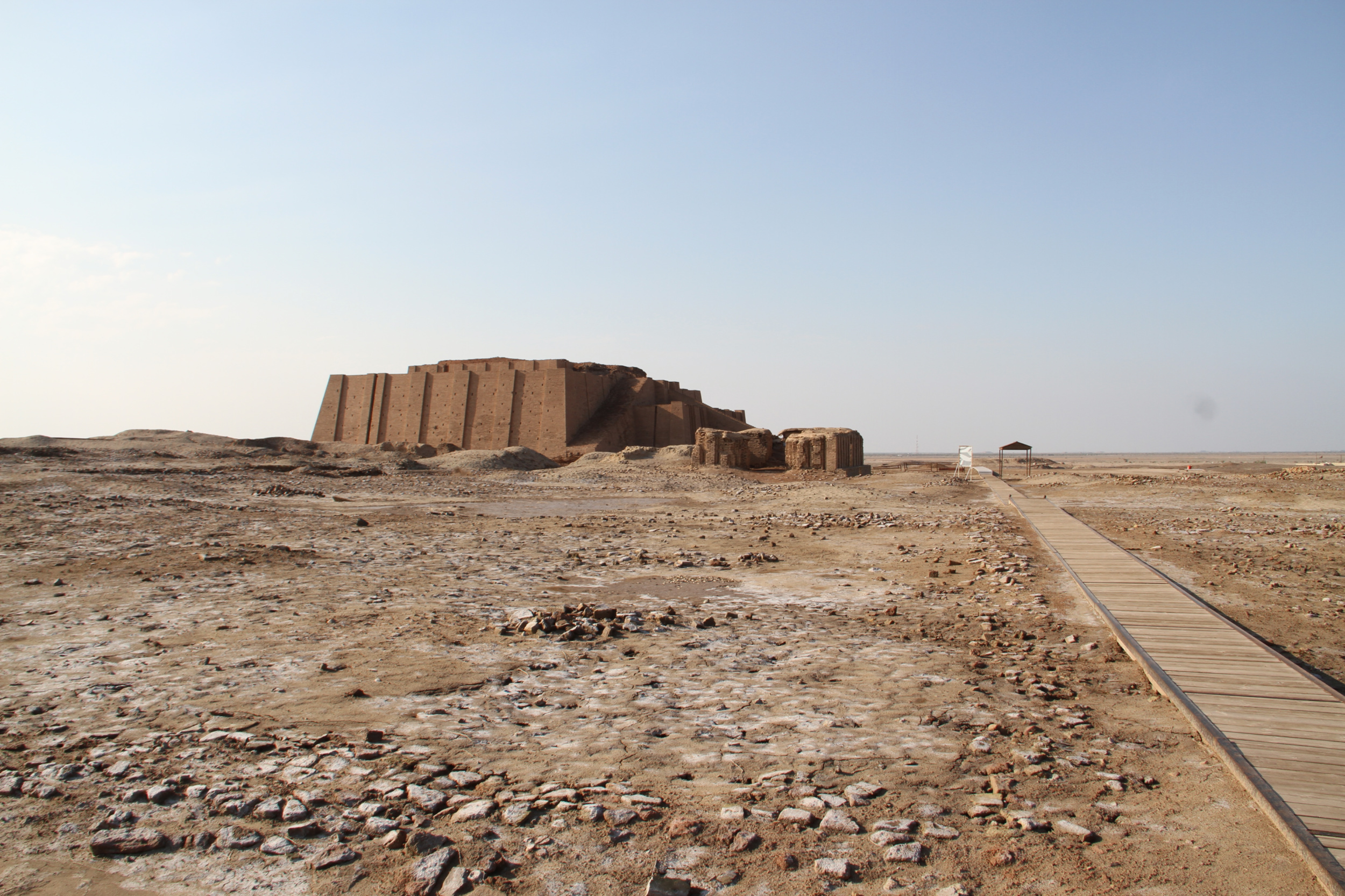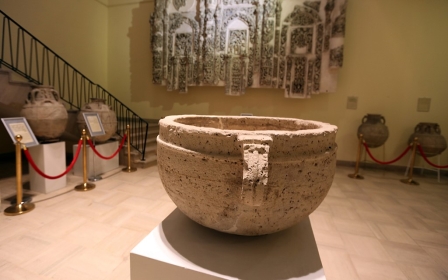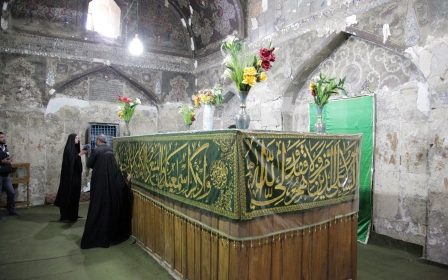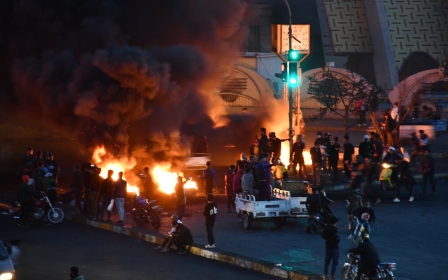Coronavirus: Iraq's heritage sites suffer renewed wave of looting amid pandemic
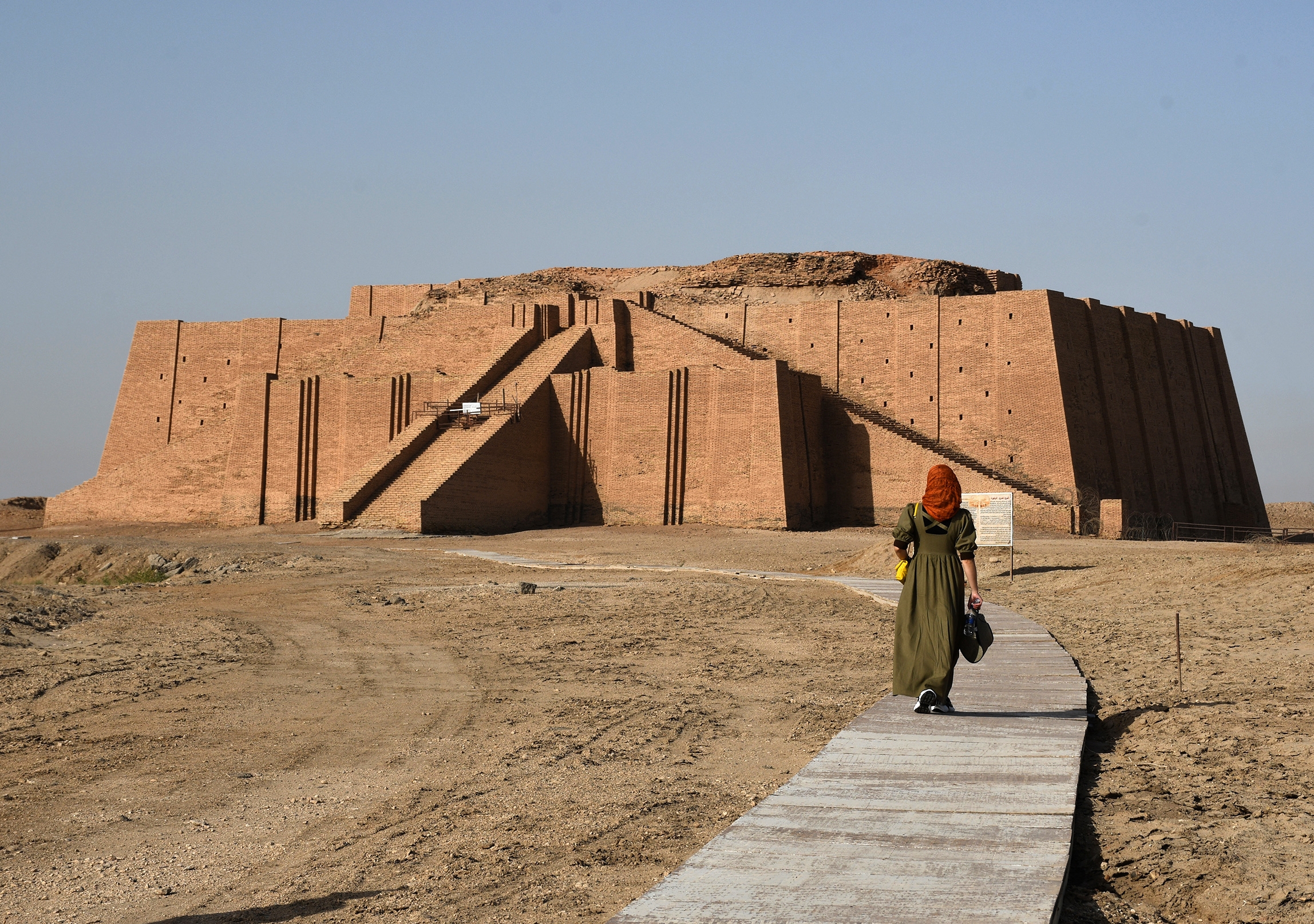
Iraq's feted archaeological sites, in the heart of ancient Mesopotamia, are sadly all too familiar with looters, having been irresistible targets for theft over the centuries.
But this year, with resources to protect these sites diverted by authorities having to deal with a struggling economy, social unrest and the coronavirus pandemic, looting has picked up once more.
Buried under Iraq's soil are layers of remnants of civilisations that have remained mostly undiscovered.
According to a 2005-10 field survey conducted by the Antiquities Inspector's office, there are more than 1,200 known archaeological sites in the country's southeast Dhi Qar governorate alone. These include the nearly 6,000-year-old city of Ur, the Biblical birthplace of Abraham, only five percent of which has been excavated since its discovery in 1855.
Apart from this legendary site, which is completely fenced off, other archaeological sites are not adequately protected as Iraq still lacks the necessary infrastructure and manpower to safeguard its rich history.
These sites have been raided "virtually ever since they existed," archaeologist Ali al-Rubaie told Middle East Eye.
"But in the last decades, which started with the sanctions against Saddam Hussein's Baath regime [1990-2003], there has been a sharp rise in looting activities. Despite the existence of severe punishments, the activity never stopped."
At the time, the weakening of state institutions and the worsening of living conditions due to unprecedented economic sanctions imposed by the United Nations Security Council encouraged people to engage in looting. Local residents saw antiquities as an easy way to make a living while the country's economy was in tatters.
While most archaeological missions were completed before the US invasion of Iraq in 2003, some of the locally recruited excavators ended up jobless and came back to plunder sites.
Rubaie said such instances took place in Dhi Qar's Tell Jokha, also known as Umm al-Aqarib, where the Sumerian kingdom of Umma was located.
"After the Baath regime's fall and the subsequent security vacuum, some of the workers [from a withdrawn archaeological mission] came back and illegally excavated the hill," he said.
Tell Jokha is emblematic of the devastating effect of the US invasion, which led to widespread looting activity.
After the US dismantled Iraq's law enforcement units, this ancient Sumerian city was intensively robbed for months, to the point where holes pockmarked the surfaces of the site and innumerable artefacts were pillaged before any archaeological unit could resume its activities.
"After 2003, I saw entire groups of looters come to raid the archaeological remains," said Abu Ahmed, a 60-year-old resident of the nearby village of al-Marrashda.
'There has been a resurgence in vandalism since last year, especially after the governorate witnessed violent protests that were followed by the outbreak of the coronavirus pandemic'
- Taher Quinn, director of the Dhi Qar's Antiquities Inspectorate
In the wake of such a disaster, powerful religious authorities stepped in to try to curb the looting by issuing a fatwa.
A decree by Iraq's top Shia leader, Ayatollah Ali al Sistani, prompted many raiders to return their findings, but many gangs remained active.
Still, this archaeological complex, which contains more than seven separate sites, has very few guards to prevent looters from trespassing.
In the absence of adequate protection, local residents took it upon themselves to defend their local heritage as best they could.
Abu Ahmed and his neighbours resorted to threatening looters coming from other parts of Iraq.
"Raids usually happen late at night. In terms of the sites that are close to our houses, no one dared to reach them because they are within shooting range," he said.
But Tell Jokha's nearby residents are not the only ones carrying weapons. Looters also come prepared against those who might try to interfere in their activities.
"In the past few years, we have seen cars loaded with people entering [Tell Jokha]. We know that they are armed and dangerous thieves, so we are unable to repel them," Abu Ahmed said.
Struggle to preserve the past
Dhi Qar's archaeological sites are spread over large areas and are difficult to protect, especially with the current level of police manpower, Taher Quinn, director of the Dhi Qar's Antiquities Inspectorate, told MEE.
"In order to solve the issue, the Department of Antiquities held a special meeting with the provincial police commanders last September, during which we agreed that the antiquities police should increase surveillance of archaeological sites."
Ever since the fall of Saddam's regime, there have been efforts to redevelop a special antiquities protection unit. The force has conducted training in protection and apprehension, and the efforts to muster an effective unit continue.
"During my time in office [December 2018 - June 2020], we supervised the training of a special force in order to protect archaeological sites, with over 250 qualified and well-equipped personnel," said Dhi Qar native Abdul-Amir al-Hamdani, an archaeologist and former minister of culture and tourism.
Last month, the province's special antiquities police stopped two antiquity smuggling networks and chased down two armed groups in Tell Jokha. In the operation, the antiquities police managed to recover 438 artefacts.
Nonetheless, Tell Jokha remains one of Iraq's most vandalised archaeological sites due to its large and isolated area.
According to Quinn, "there has been a resurgence in vandalism since last year, especially after the governorate witnessed violent protests that were followed by the outbreak of the coronavirus pandemic".
Large-scale, popular anti-government protests broke out a year ago across Iraq's central and southern cities. The movement was violently repressed, with security forces killing at least 560 protesters.
Director of public relations and information at Dhi Qar Police Command, Brigadier General Fuad Karim, said that many police forces working in rural areas of Nasiriyah withdrew to their barracks out of fear of retaliation from powerful tribes seeking to avenge the killing of protesters.
This created a new power vacuum in the province, further preventing sufficient protection of historical sites.
But while many police forces eventually returned to duty in most of southern Iraq, the outbreak of the coronavirus pandemic earlier this year and the consequent repercussions on an already fragile economy played an additional role in the increase of looting.
"Unquestionably, the pandemic and the economic situation, which was worsened by the pandemic, caused a surge in looting activity in Iraq," said Salah Hatem, archaeologist and assistant professor at al-Qadisiyah University in Diwaniyah, in the governorate adjoining Dhi Qar to the northwest.
"Impoverished Iraqis resort to looting in search for gold or statues and destroy structures, architecture and clay tablets that have lesser values in the eyes of traffickers."
Smuggled heritage
At the root of the threat facing Iraq's heritage is that protecting antiquities was never seen as a top priority by Iraqi decision-makers nor by US forces after they invaded the country.
Hamdani noted that, since its inception, a part of the special force trained to guard heritage sites was diverted from its mission to protect other establishments.
"Right after the downfall of the Baath regime, while insecurity was growing steadily, many sites were neglected, as priority was given to what were considered as more vital institutions, such as schools, hospitals, or banks, while archaeological sites remained unprotected," Hamdani said. "This remains a major problem till this day."
The former culture minister stressed the need to invest more in archaeological protection units, to increase the number of patrols around antiquity sites and to cut off smuggler routes.
Antiquities are usually smuggled to Jordan or Turkey before being sold on black markets around the region. They often end up in private collections.
Iraqi authorities regularly retrieve artefacts stolen mostly during the US occupation after international investigations locate them around the globe.
Meanwhile, Karim stressed that police forces are aware of the gravity of the situation and that local authorities are planning to increase patrols in Dhi Qar .
Nevertheless, experts remain dubious that authorities will manage to make an effective change.
"In general, the state acts irresponsibly towards the protection of archaeological sites simply because it suffers from a lack of funding, and staff professionalism", archaeologist Hatem claimed.
Local forces allocated to preserve Iraq's heritage will therefore need to improve their effectiveness and also tackle separate issues such as trespassing by farmers and cattle herders. Farmers have been reported installing water pipes in archaeological sites while digging in and around them to increase their farming surfaces.
"Farmers often bulldoze archaeological sites and then cultivate the land," Hatem said.
Cattle also regularly pass through archaeological remains in search of grazing areas, often damaging the fragile and ancient structures at the surface.
While the Iraqi invasion in 2003 caused irreparable damage to the Iraqi people and their heritage, the ongoing instability is increasing the toll and allowing the perpetuation of illegal looting.
As the country remains stricken by conflict and poverty, the Covid-19 pandemic continues to serve as another factor diverting the country’s efforts to restore and protect its unique cultural heritage.
By the end of September, the country was reporting close to 4,000 new cases every day and around 500 deaths per week. On 23 September, 5,055 new cases were reported across the country, the highest daily rate since the start of the pandemic.
Meanwhile, low oil prices are limiting the prospects for economic recovery as the pandemic continues. In July, the economy was forecast to contract by as much as nine percent this year.
Middle East Eye delivers independent and unrivalled coverage and analysis of the Middle East, North Africa and beyond. To learn more about republishing this content and the associated fees, please fill out this form. More about MEE can be found here.



